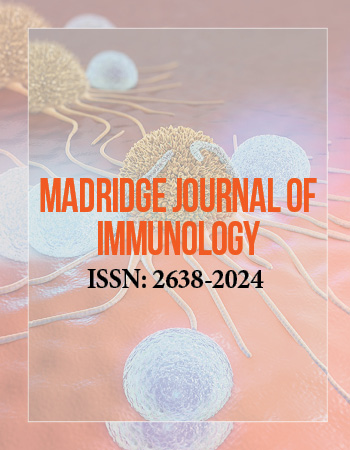International Conference on Immunology and Immunotechnology
November 1-3, 2017 Barcelona, Spain
IFN-α Boosting of Mycobacterium Bovis Bacillus Calmette Guerin (BCG)-Vaccine Promoted Th1 Type Cellular Response and Protect against M. Tuberculosis Infection
1Molecular, Biochemical and Immunobiology Lab, Zacatecas Autonomous University of Mexico, Mexico
2Department of Hematology, Oncology and Molecular Medicine Superior Health Institute, Italy
Th1 type cellular activity plays a key role for the control of M. tuberculosis (MTb) as well as the induction of long-term memory conferring protective immunity. In order to better understand Mtb-specific immune mechanisms, both cellular and innate immune responses should be taken into account and the role of pivotal cytokines orchestrating their complex interactions should be elucidated. Type I interferonʼs (IFN-I)(α/β) are an important family of infection-induced cytokines that among other multiples functions, promote differentiation/activation of DCs in both human, and participate in the regulation of the Th1 responses. However, contrasting and controversial results have been provided against microbial infections either in vivo as well as in vitro. At this point, our group has reported that IFN-alpha associated to BCG protects against M. lepraemurium, a mice pathogen elicited a similar skin lesion than M. leprae in adults persons with a concomitant increase in NO synthase. In the present work, we are reporting that under a specific experimental protocol of prime-boost settings, IFN-alpha boosting of BCG vaccine in mice and/or in human cell lines (A549, macrophages derived from PBMC), elicited IFN-γ, TNF-α, as well as IL-17, correlated with the induced protection against M. tuberculosis. Altogether, the data strengthened IFN-alpha as a potential candidate boosting of BCG immunity.
Biography:
Dr. Guerrero obtained his PhD from the National Autonomous University of Mexico. Thereafter, he did two post doctorates. One of them in the Institute of Biology of Institute Pasteur in Lille, France under the supervision of Dr Camille Locht. The second postdoc was in the lab of Jean Laureant Casanova, working with the human tuberculosis. Right after that he spent almost two years in the Institute Superiore di Sanita in Rome, Italy in which he started to work with interferon alpha and the role in mycobacterial infections. He is the head of the Molecular Biochemistry and Immunobiology lab in the Unit of Biological Science of the University Autonomous of Zacatecas in Zacatecas State Mexico. His principle interest in the study of the molecular mechanism of tuberculosis in the three models, bovine, human and using the murine model, with the aim to identify biomarkers that can be used potentially in therapy and candidate vaccines.


